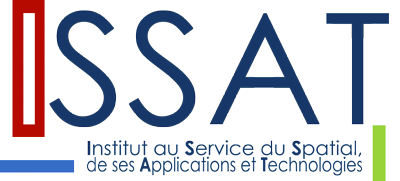aller au menu | aller au contenu


Space applications
training courses
Courses
Sciences and technology major in physics Astrophysics and data science
- Organisations :
- Observatoire Astronomique - Strasbourg
(Université de Strasbourg - Unistra) - Faculté de Physique et Ingénierie - Strasbourg
(Université de Strasbourg - Unistra)
- Observatoire Astronomique - Strasbourg
- Way of training : Initial education
- Language(s): English
- Place: Strasbourg (French Regions: Grand-Est)
- Prepared diploma/grade/title: Master or DNM: French National Master Degree
- 1st required level : French baccalauréat + 4
Course Details
Objectives : Our goal is to educate scientists and astrophysics experts. For this purpose, the teaching aims at providing a view of the current state of knowledge in our field and of the methods used on a daily basis by professional astrophysicists. We rely on the expertise of the research groups (GALHECOS and CDS) at the Strasbourg Observatory such as:
- The physics of galaxies and the Milky Way, including their relations to cosmology
- The study of stars and their evolution, populations or environments
- The astrophysics of high-energy phenomena and of compact objects (such as black holes, neutron stars/pulsars)
- the developments related to the Virtual Observatory, the use of catalogs and surveys and the management of large and complex datasets in astronomy
- the usage of numerical simulations for astrophysics, high-performance computing and novel methods such as machine learning.
Public concerned : Students considering future employment in astrophysical research.
- Students who are curious about the Universe, and who wish to work in fields such as physics, space science, numerical modelling, computing, teaching or scientific communication.
Degree Level (EU) : 7 - (EQC level or equivalent)
Admission requirements : Successful completion of higher education in sciences, preferably physics (French Licence or equivalent degree).
A local Teaching Committee studies individual applications from students following non-standard curricula.
Requests for direct entrance into the second year of the Masters programme will also be considered. Promotion limited to 18 students in M2
Duration and terms : 1 year if admission in M2
Teaching in English!
Dedicated web site : https://astro.unistra.fr/en/training-education/master-astrophysics-track/
Dedicated web site : https://physique-ingenierie.unistra.fr/formations/masters/physique/astrophysique ()
Space Technologies and Scientific Disciplines
- Data processing and analysis (Signal and image processing, big data, learning algorithms, artificial intelligence...)